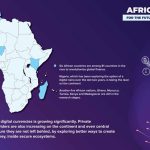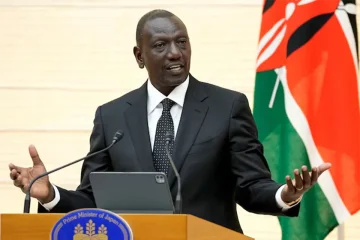AFRICA accounted for US$117.1 billion in cryptocurrency transactions in the year to June 2023, constituting 2.3% of the global transaction volume.
Centralised exchanges in this period, proved to be the go-to platforms, channeling over half of the region’s digital asset volume, according to blockchain analysis firm, Chainalysis.
In a notable deviation from global trends, Africa’s digital coin market leaned heavily on retail investors. The bulk of the transactions were pegged under the US$1 million mark, illustrating a distinct retail-driven trend compared to other regions.
Though historically one of the smaller players in the crypto arena, Africa’s in-depth data paints a story of deep market penetration and a significant shift in the financial habits of its residents.
Nigeria, entrenching its crypto engagement, secured the second spot on the Global Crypto Adoption Index.
Notably, it outperformed other regional counterparts in raw transaction volume. Kenya, Ghana, and South Africa also made their presence felt, ranking 21st, 29th, and 31st respectively on the same index.
Chainalysis notes that the African market’s affinity for Bitcoin remains one of the strongest of any region.
“In no region is Bitcoin more dominant than Africa, as the world’s first cryptocurrency makes up a bigger share of transaction volume there than in any other region,” reads its analysis in part.
Chainalysis, launched in 2014, is the first start-up company dedicated to the business of Bitcoin tracing
“Many countries in the region have struggled with rising inflation and debt, making cryptocurrency an attractive means of storing value, preserving savings, and attaining greater financial freedom,” it notes.
For instance, Ghana grappled with a spiralling inflation rate of 29.8% in June 2022, its highest in two decades.
With limited traditional financial avenues, many Ghanaians have pivoted to Bitcoin with parallel narratives echoing in Nigeria, Kenya, and South Africa, all showcasing remarkable grassroots crypto adoption.
Still, some market players have shifted their preference from Bitcoin to stablecoins recently, as these tend to experience fewer price fluctuations than Bitcoin, whose value is far below its peak levels.
“When Busha gained popularity around 2019 and 2020, there was a big frenzy for Bitcoin. A lot of people were not initially keen on stablecoins. Now that Bitcoin has lost a lot of its value, there is a desire for diversification between Bitcoin and stablecoins,” Moyo Sodipo, Co-Founder and CPO of Nigeria-based cryptocurrency exchange Busha told Chainalysis.
“However, market shifts aren’t dampening activity. People are constantly looking for opportunities to hedge against the devaluation of the Naira and the persistent economic decline since COVID-19.
Tellingly, Nigeria stands out with its vast population and the region’s leading economy.
Significantly, it also dominates in its cryptocurrency economy. Notably, despite market fluctuations, Nigeria’s crypto landscape has expanded steadily.
Among the top 50 global nations, only six witnessed a growth in crypto transaction volume year-over-year in our study’s timeframe. Nigeria, with a 9.0% growth rate, ranks third among them.
Facing two major recessions since 2016, due to political instability, the COVID-19 pandemic, and plummeting oil prices, Nigeria’s economic strife has led over 20 million people to seek employment in 2021.
Crypto emerges as a potential solution for these challenges, as many Nigerians also consider relocation.














